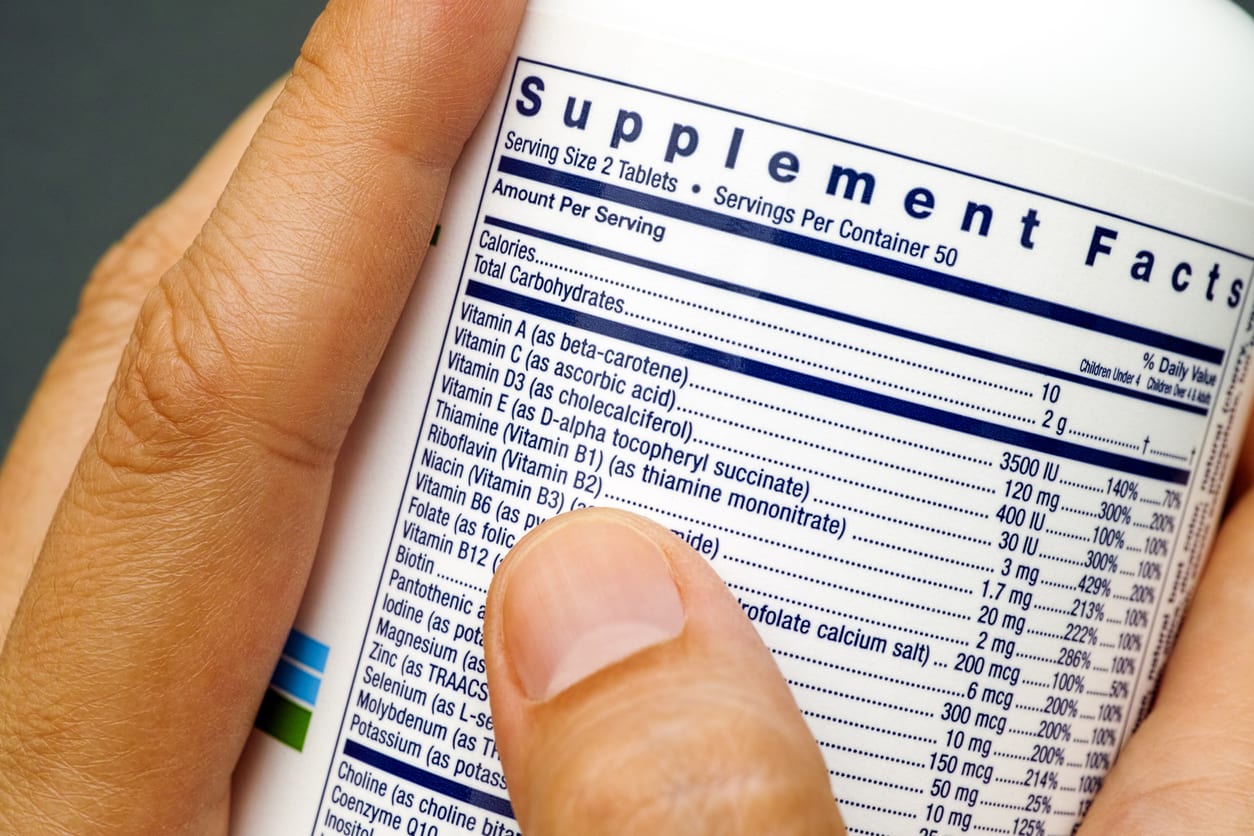Finding out you’re pregnant is one of the most exciting times in a woman’s life! It also comes with many decisions to make. Choosing a prenatal vitamin is one of them. While it may seem like a basic task, there are various options to consider. From chewable to pills to liquid vitamins, the list goes on and on. Many women also have the dilemma of whether they want folic acid or folate in prenatal vitamins. Read on to learn which option might suit you best.
Folic Acid vs. Folate in Prenatal Vitamins
The debate over folic acid vs. folate in prenatal vitamins has become heated over the past few years. More pregnant mommas are learning about the difference between the two and wondering if they should take one over the other. The problem is many prenatal vitamins contain folic acid, and finding ones with folate may be more challenging and expensive. But what’s the big deal? Is it really essential to choose folate in prenatal vitamins over folic acid?
Let’s look at what folic acid is, compare that to folate, and discuss why there’s such a huge debate.
The Difference Between Folic Acid and Folate in Prenatal Vitamins
Folic acid is a water-soluble B vitamin. This supplement is recommended before and during pregnancy to help prevent neural tube defects. Folic acid is the synthetic form of this particular B vitamin commonly added to foods like cereal, flour, and bread.4
Folate, on the other hand, is the natural form of the vitamin (vitamin B9). It occurs in foods like dark leafy greens, beans, mushrooms, and meat.4
What’s the Big Deal With Folate in Prenatal Vitamins?
If both folic acid and folate help prevent neural tube defects, why is there a debate between the two?
One of the most significant potential issues with folic acid is that some women cannot metabolize it well. This often occurs with an MTHFR gene mutation where women need L-methylfolate instead of folic acid. When taking folic acid, the body has to undergo two conversions for the body to use it. After the first conversion takes place (DHF to THF), the THF can be converted into L-methylfolate, which the body can then use.1
The tricky thing is nearly 60% of Americans have issues converting folic acid into the usable form of L-methylfolate. This can cause problems for pregnant women, as they may not get as much folate as the body needs.1
Which Should You Supplement With?
So, should you opt for a prenatal vitamin that contains folic acid or folate? Some new research states that due to the high prevalence of the MTHFR gene mutation, it may be best to supplement with L-methylfolate instead of folic acid to prevent any issue relating to the breakdown of folic acid in the body.5 However, the Centers for Disease Control and Prevention (CDC) still recommends supplementing with 400 micrograms of folic acid daily.2,3
The answer ultimately lies within your genetic makeup. If you know you have the MTHFR gene mutation, you might be better off supplementing with folate. However, what if you don’t know if you have this mutation? Because a majority of the population may have difficulty converting folic acid into folate, you might choose a prenatal with naturally occurring folate to be on the safe side.
The great news is more and more prenatal vitamin companies are starting to offer naturally occurring folate in their products. This means you should be able to find the supplement that works best for you.
Here are a few great options with the recommended daily dosage of folate:
1. Garden of Life Vitamin Code Raw Prenatal Vitamins
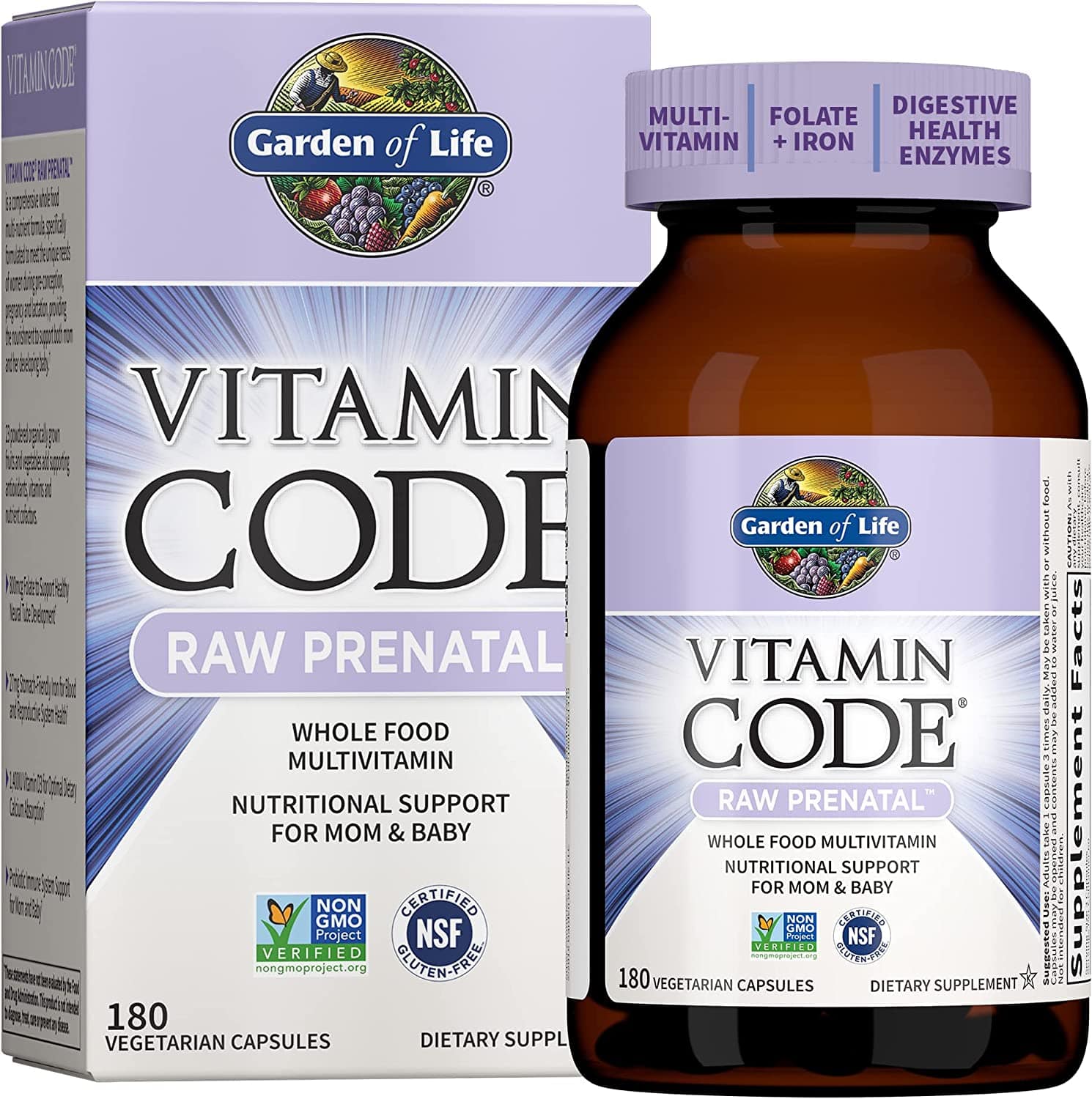
This multivitamin from Garden of Life provides nutritional support for both you and your baby. These capsules are generally easy to swallow, but you can open them and add them to your favorite juice or water. The daily serving contains 800 micrograms of folate to help prevent neural tube defects, which are congenital disabilities that affect a baby’s brain and spine.9
The dietary supplement also has a blend of raw, organic fruits and vegetables, including apple, cucumber, raspberry, carrot, blueberry, and ginger. It’s free of artificial flavors, sweeteners, and additives and includes probiotics to promote digestion.
2. New Chapter Advanced Perfect Prenatal Multivitamin
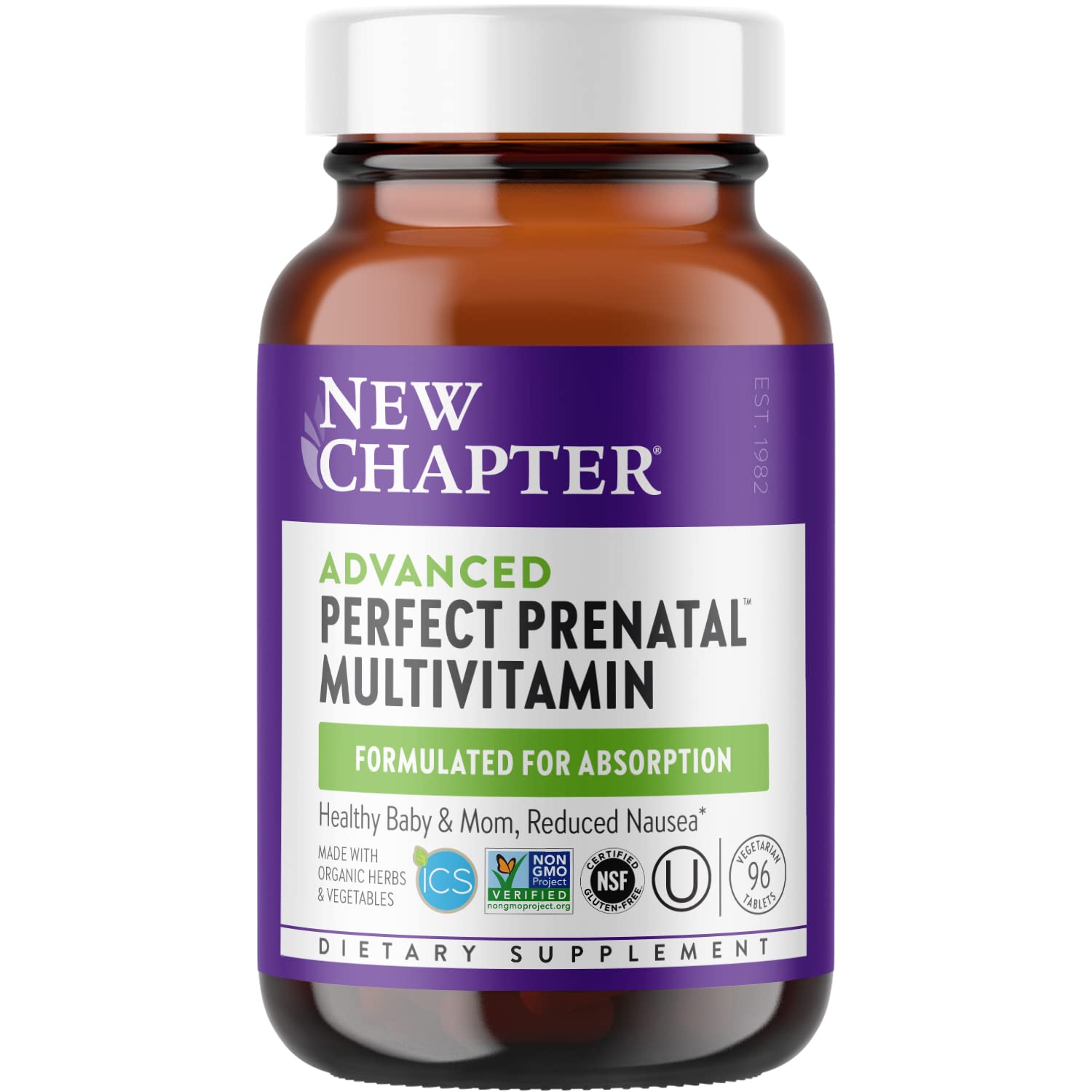
New Chapter’s prenatal vitamins help to support your baby’s development and ease your morning sickness. The daily dosage provides 600 micrograms of folate, which is the FDA’s recommended daily amount of folate during pregnancy.7 The vitamin contains ginger, which decreases nausea, and fermented ingredients that allow for better absorption in your body. You can also take it on an empty stomach.
In 2016, this multivitamin was named a recipient of the Women’s Essentials Award from Taste for Life magazine, which highlights the best natural health products.6 So you can trust its quality and effectiveness.
3. SmartyPants Prenatal Formula Vitamins
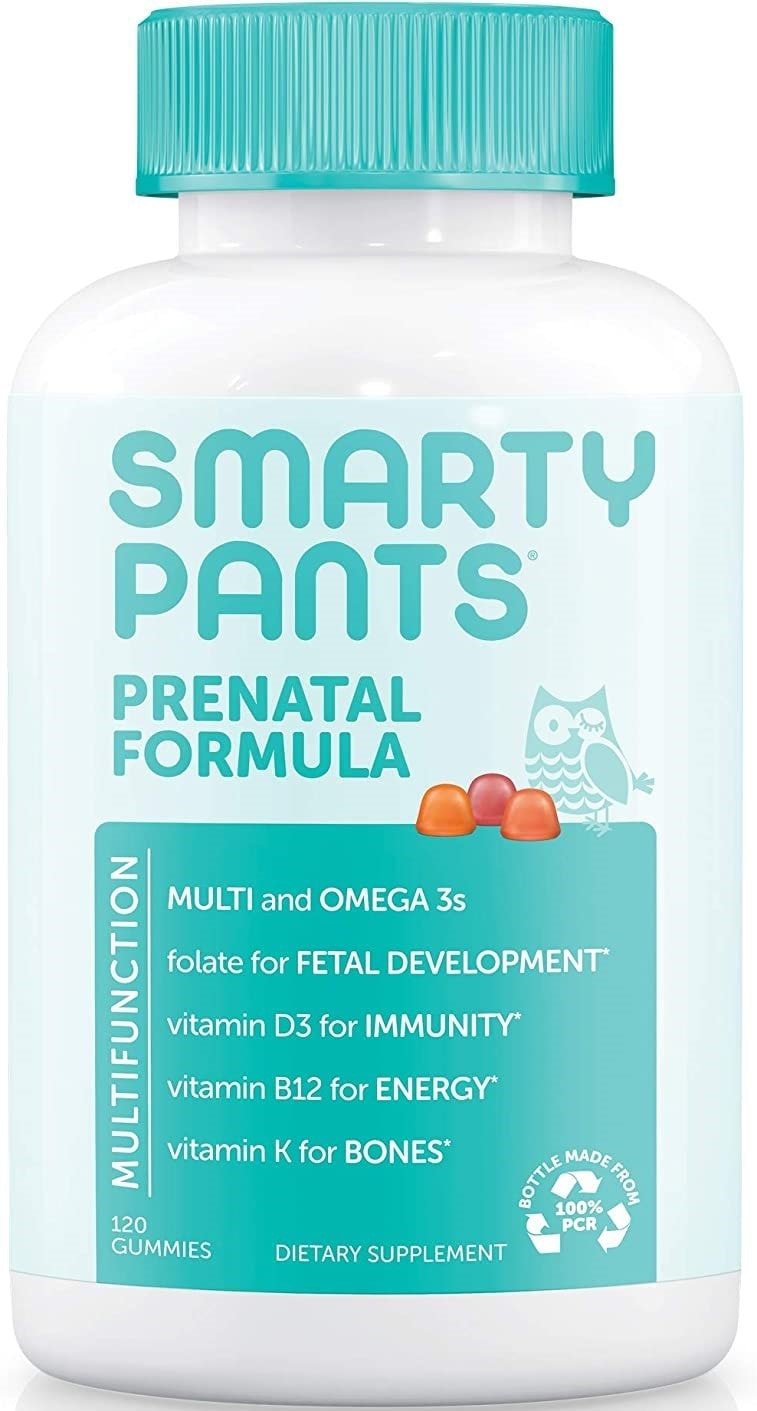
These SmartyPants gummies come in tasty lemon, orange, and strawberry banana flavors. It’s also a proud winner of the Clean Label Project Purity Award, which verifies that products don’t have harmful chemicals, toxins, and contaminants.12 Taking four vitamins daily gives you 600 micrograms of folate, and you can take them all at once or throughout the day.
They also contain omega-3 fish oil, which helps develop the fetal brain and retina.10 The omega-3 fatty acids in this prenatal formula only come from small fish, making them more sustainable than fish oil produced from larger fish.11
4. Thorne Basic Prenatal Dietary Supplement
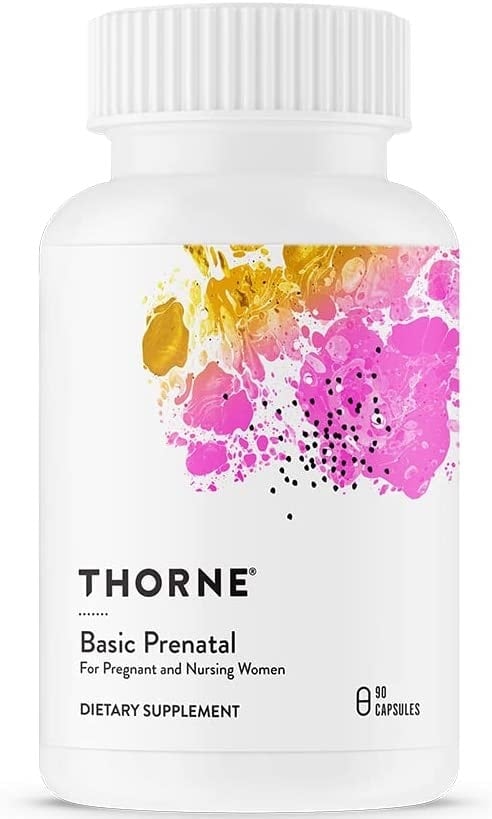
This prenatal dietary supplement from Thorne is beneficial through all the stages of pregnancy, from pre-conception to the third trimester, and for nursing after pregnancy. The daily serving contains 1.7 milligrams of folate and other nutritional ingredients, such as vitamin C and B6, which can help improve your immune system and reduce morning sickness, respectively.13,14
It’s best to take these capsules with a meal, but you can take the daily dosage all at once or throughout the day. This dietary supplement is also made with natural flavors and colors and contains no additives.
If you have questions or concerns about what vitamin to take throughout your pregnancy, speak with your OB/GYN or midwife. They can help you determine what supplement will work best for you.













